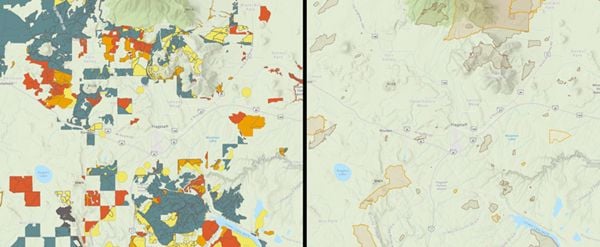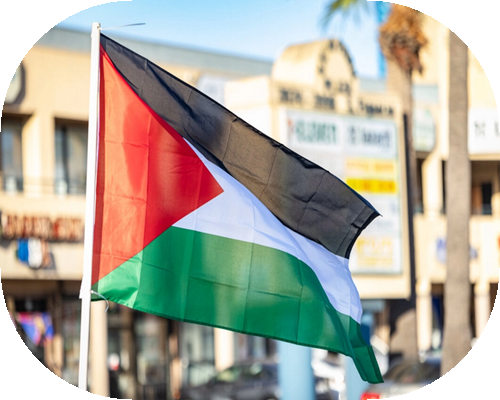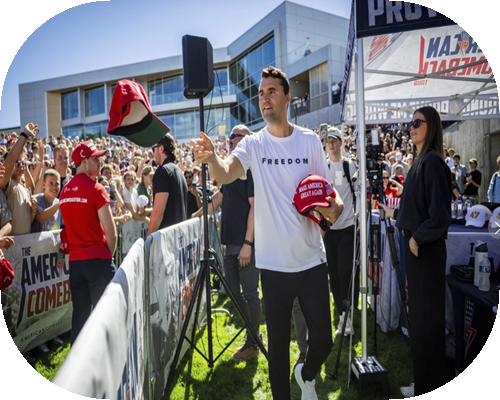Photo courtesy of Ideogram.ai
[Editor’s Note: Prescott has this program.]
Maria and Delbert Wells have made their home a place of care and connection for Veterans through Oklahoma City VA’s Medical Foster Home (MFH) program.
The MFH program offers Veterans who need daily care a unique alternative to nursing homes. Veterans live in caregivers’ homes, receiving personalized attention and one-on-one care, and are supported by VA’s Home-Based Primary Care teams. These teams include doctors, nurses and other health care professionals who provide medical care directly in the home.
Veterans who qualify for the MFH program pay their caregivers directly. For those concerned about affordability, many Veterans may be eligible for financial assistance through VA Pension or Aid and Attendance benefits.
For the Wells family, caregiving is deeply personal. Before joining the MFH Program, Maria and Delbert cared for another Veteran through VA’s Program of Comprehensive Assistance for Family Caregivers for over 15 years.
“When he passed, I knew I wanted to keep helping Veterans, especially those who don’t have anyone left,” said Maria.
They connected with Lindsey Altmiller Hester, Medical Foster Home Program coordinator at Oklahoma City VA.
Through this connection, Maria and Delbert welcomed Jim Foster, a 79-year-old Army Veteran from Seattle living with cognitive decline. He served during the Vietnam War from 1963 to 1969. After spending over a year in transitional housing for Veterans experiencing homelessness, he now enjoys stability, care and the feeling of being part of a family.
The Wells ensure he has opportunities to connect and engage in meaningful experiences. They took him to the Red River Rivalry in Dallas, the annual football game between the University of Texas and the University of Oklahoma.
“Jim loved it. Being in the stands with us made him feel like he was part of something bigger,” Maria said. “My sisters, nieces and nephews all know him now. When we gather, they talk with him, share meals and make him feel included. You can tell he feels comfortable here. He’s relaxed, laughs with us and is more open about his thoughts and memories. That’s how I know he feels like he belongs.”
How VA supports MFH Veterans and caregivers
The MFH Program provides valuable support for both Veterans and caregivers. For Veterans, it gives them secure housing and means they receive medical care at home from VA doctors and nurses, reducing the stress of traveling to clinics.
“The doctors and nurses come here. If I have any questions, I can call them directly, and they’re always ready to help,” Maria shared.
VA social workers actively provide resources for caregivers and regularly check in, ensuring they’re ready for the challenges of caregiving.
Hester shared why the program is so meaningful for everyone involved, noting that for Veterans, it’s about quality of life and the ability to remain in the community with 24-hour care but not in an institution.
“For the caregivers, it’s extending their family and giving them a chance to care for another person in their own home. It is rewarding and challenging and beautiful all at the same time,” Hester said. “For me, it’s serving my family. My little brother is an Afghanistan Veteran and my grandfathers served in World War II and Korea. When you view this as serving your family, it’s different. These Veterans are my family. I think about how my grandfathers would have thrived in a Medical Foster Home like this, surrounded by a caregiver’s love and attention.”
How the MFH program works and financial support
The MFH program is open to Veterans of all ages and demographics, allowing Veterans to live in a home environment while receiving personalized care. Veterans are responsible for paying their caregivers directly, with monthly costs typically ranging from $2,000 to $4,000.
The caregiver rate is negotiated between the Veteran or their responsible party with oversight from the VA MFH team to ensure that the arrangement meets everyone’s needs.
For Veterans concerned about affordability, VA offers financial assistance programs that may help. Many Veterans in the MFH Program are eligible for VA Pension and Aid and Attendance benefits, which can help offset the cost of care.
VA Pension offers monthly payments to low-income wartime Veterans. The Aid and Attendance benefit provides additional financial assistance for Veterans who require help with daily activities, such as bathing, dressing, eating and moving around safely. These benefits support Veterans as they age or encounter health challenges, ensuring they can access the necessary care.
MFH caregivers provide round-the-clock support for these tasks, offering personal care, medication management, meal preparation and help with social activities. The Aid and Attendance benefit helps make this care more affordable for Veterans while allowing them to maintain their dignity and quality of life in a home-like setting.
If you’re seeking compassionate care, check out the VA Medical Centers with Medical Foster Home programs. Connect with your local VA social worker to find out when a Medical Foster Home will be available near you.
How useful was this article ?
Click on a star to rate it!
Average rating 0 / 5. Vote count: 0
No votes so far! Be the first to rate this post.
We are sorry that this post was not too useful for you!
Let us improve this post!
Tell us how we can improve this post?














